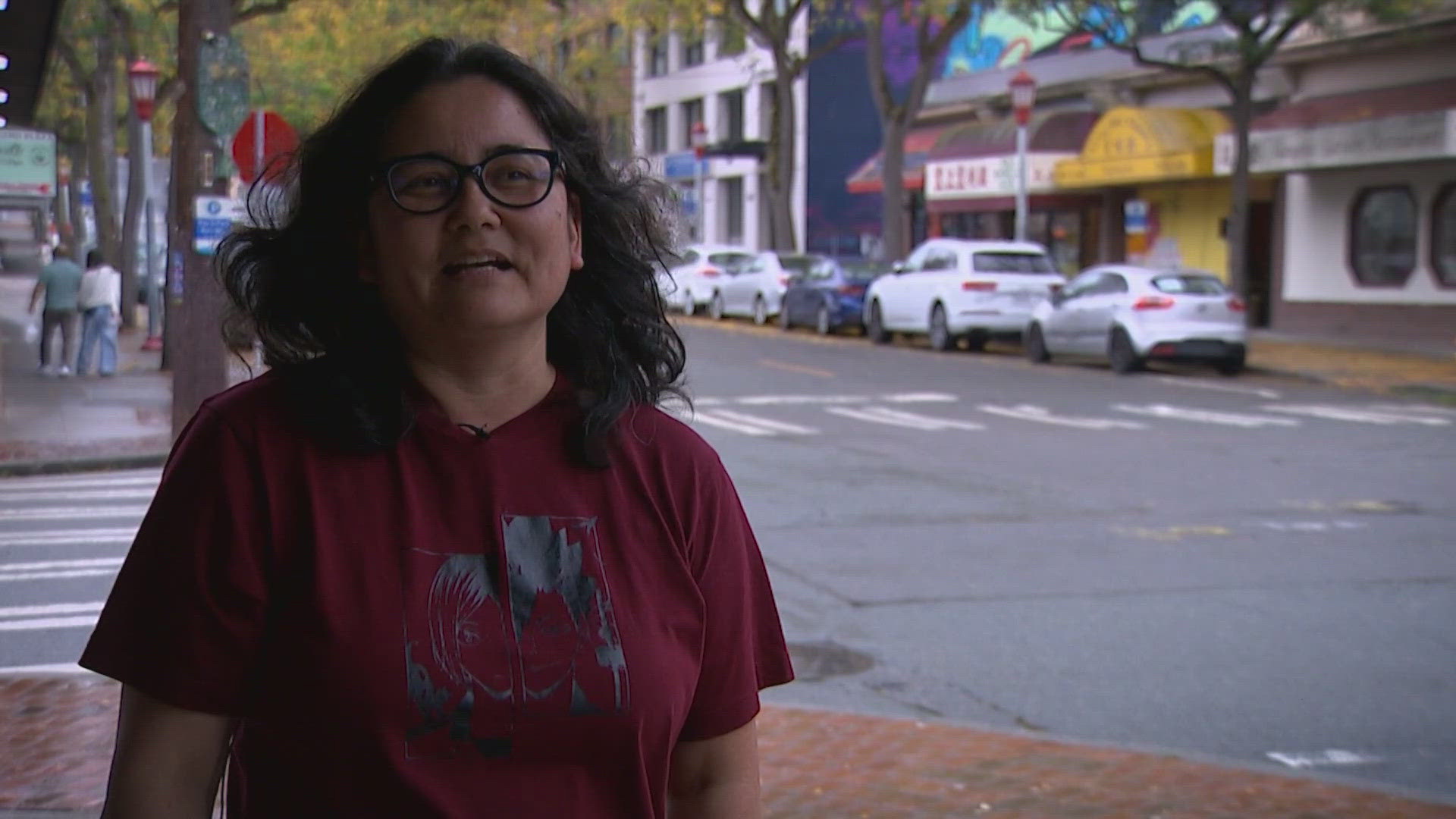SEATTLE — A recent study by the Asian American Foundation has shed light on the disturbing reality many Asian Americans, Native Hawaiians, and Pacific Islanders (AANHPIs) face in Seattle.
Nearly two out of five residents experienced anti-Asian hate incidents in the past 12 months. Nearly three out of five residents don't feel safe in public.
"The study doesn't surprise me," said Miki Fly, a community member. "I probably think it's underreporting because we don't notice it as much. We're numb to it."
Conducted in partnership with the Chinese Information and Service Center (CSIC), here are some of the big takeaways from the study:
- 30% of surveyed Asian Americans reported receiving verbal insults or name-calling
- 24% were harassed or threatened
- 20% were physically attacked
Residents of the International District were disproportionately affected with 47% experiencing anti-Asian incidents compared to 33% in other parts of Seattle.
72% of AANHPIs in Seattle have resorted to shifting habits and behaviors out of fear of being targeted for their race or ethnicity.
"A lot of the information, the community has known for a long time," said Michael Itti, executive director of the Chinese Information and Service Center. "Anti-Asian hate continues to be a concern. Public safety is a top concern in our community."
The study also highlighted underreporting, with only 46% of victims reporting incidents to anyone, and even fewer to law enforcement or community organizations.
"I would encourage people to report to a community-based organization or law enforcement because it's essential to have that data to understand what's happening in our community," Itti said.
With accurate data, organizations like the CISC can push elected leaders to address the problems.
"Invest in communities to help make our neighborhoods safer," Itti said.
To feel safer, those surveyed said they'd like better infrastructure like lighting and side walks, better relations with police, more more mental health services, and more community engagement events.

